The Netflix ’70s Outrageous Comedy That Caused Unbelievable Controversy
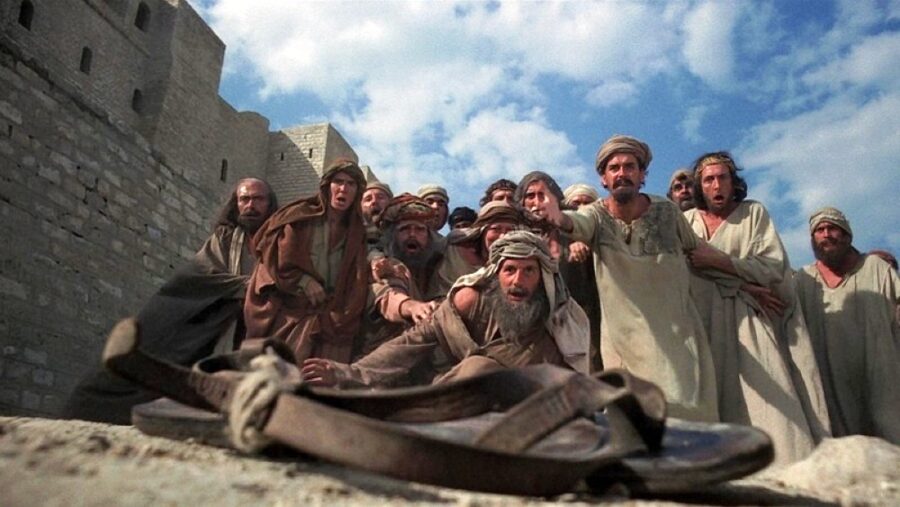
As much as we all love Monty Python, few films garnered as much debate and controversy as their seminal 1979 film, Monty Python’s Life of Brian. In addition to delighting audiences then (and now—on Netflix), the British satirical, period-piece comedy pushed the boundaries of humor and waltzed gleefully into sensitive religious and political subjects. Undoubtedly, its resurgence on streaming will reignite discussion about its impact and subsequent controversies.
Who Is Monty Python?
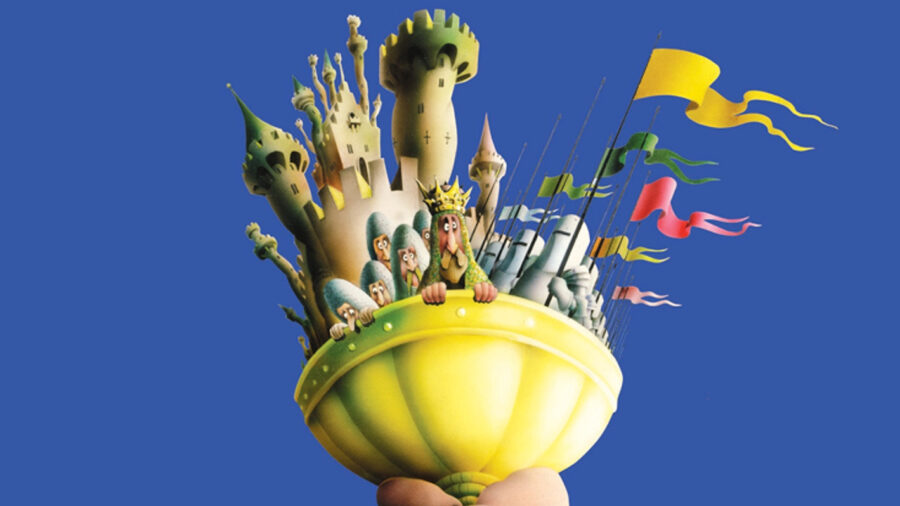
Like their other classics—Monty Python and the Holy Grail, Monty Python and The Meaning of Life—“Brian” emerged from the ingenious minds of the famed Monty Python comedy troupe. The legendary lineup consisted of Graham Chapman, John Cleese, Terry Gilliam, Eric Idle, Terry Jones, and Michael Palin. Adored for their surreal comedy, which many consider the quintessential representation of “British humor,” it seemed only natural that, with Life of Brian, the troupe would tackle religious themes through their inimitable comedic lens.
A Beatle Funds Life Of Brian
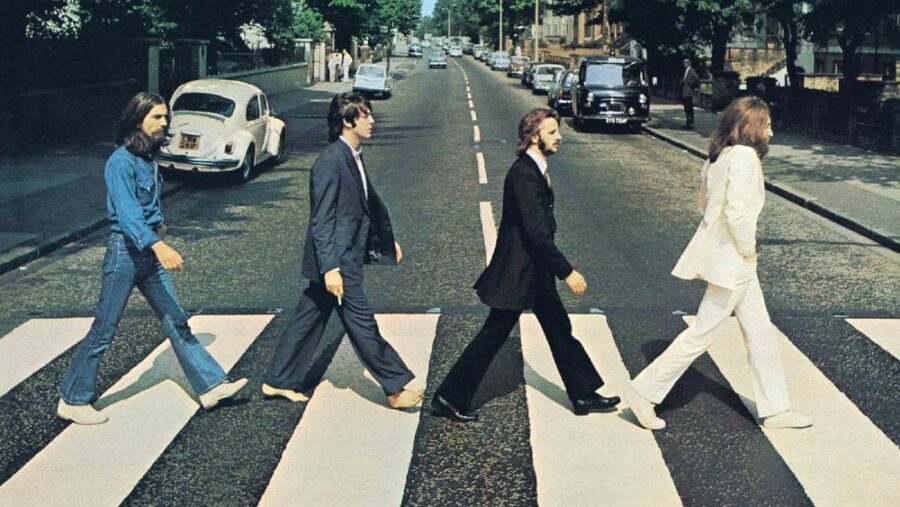
Even before fanning the flames of controversy upon its release, the film encountered challenges in production. Initially slated to finance the movie, EMI Films pulled out mere days before filming. Why?
You guessed it: concerns over its controversial subject matter. It was then George Harrison, an enormous fan of Monty Python, who took matters into his own hands and independently financed the film through his production company, HandMade Films. When pressed as to why, the former Beatle famously stated it was because he merely wanted to see the movie.
What Is Life Of Brian About?
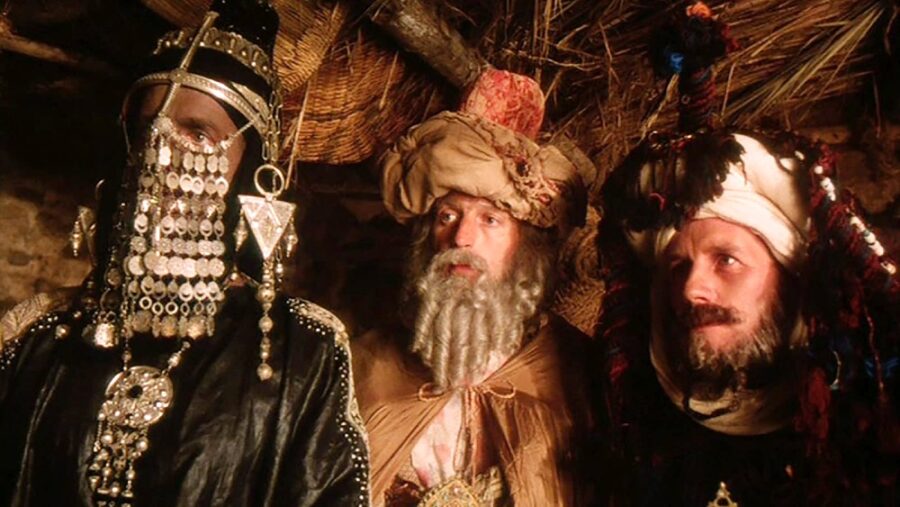
Life of Brian advances a narrative rife with satire and religious parody, unfolding amidst the historical backdrop of Roman-occupied Judea. The plot concerns Brian Cohen, a young Jewish man who shares his birthday and birthplace with Jesus. Memorably, the film begins with a humorous case of mistaken identity; the Three Wise Men mistakenly visit Brian’s manger instead of Jesus’s.
Growing up disillusioned with the Roman occupation, Brian joins the People’s Front of Judea, one of the many fractious and ineffectual resistance moments opposing the Romans. After a series of mishaps and misunderstandings, Life of Brian initiates its central comedic conceit when a group of desperate people mistake Brian for a prophet. Despite his (similarly desperate) attempts to dissuade the augmenting group of followers, the disciples idolize him, interpreting his every word and action as spiritual teachings, miracles, or both.
The Controversial Song
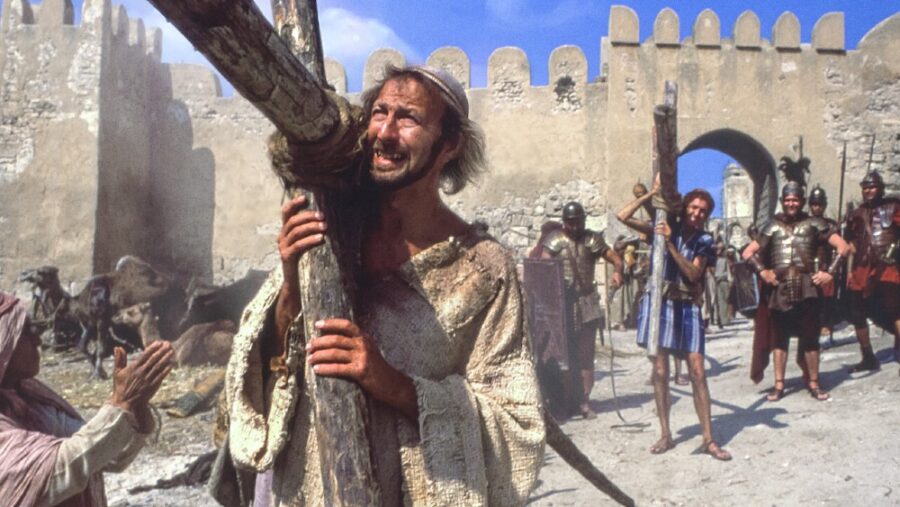
The film culminates in perhaps its most unforgettable sequence: Brian, having been captured by the Romans and despite various attempts to rescue him, is crucified. Hence the iconic and controversial scene in question—Brian and other crucified individuals singing “Always Look on the Bright Side of Life.” Life of Brian has indeed cemented the song’s status as an emblem, juxtaposing dark humor with the painfully cheerful melody.
The Response
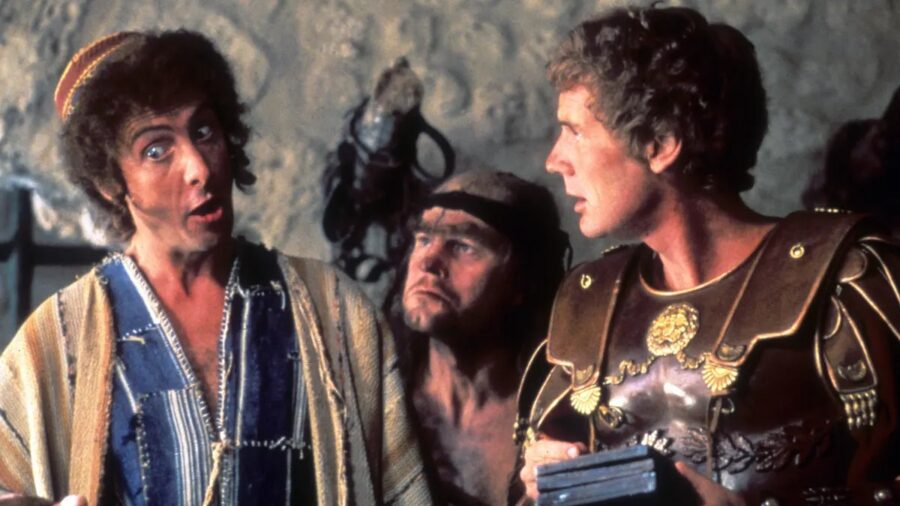
Predictably, upon its release, the film courted controversy. At the same time, it earned critical praise—admiration it continues to enjoy. Critics adored the film’s scathing humor and sharp satire, especially lauding its boldness in tackling sensitive subjects. Fans streaming the film today should feel similarly.
Concerning the backlash, religious groups lined up to condemn the film, deriding what they considered its blasphemous content. Several countries (and municipalities in the UK) went so far as to ban the Life of Brian; a few, like Norway and Ireland, only relented and lifted their bans years later. Famously, Italy’s ban surpassed a decade in length.
Angry critics of the film also took to the streets, staging public demonstrations and picketing cinemas that screened the film. These protests were by no means limited to the UK; they took place in the United States and other countries. For its part, the film sparked energetic debate surrounding the role of religion in society and film, as well as the boundaries of comedic satire. The Python boys participated in several televised debates, defending Life of Brian against its accusations.
A Global Phenomenon
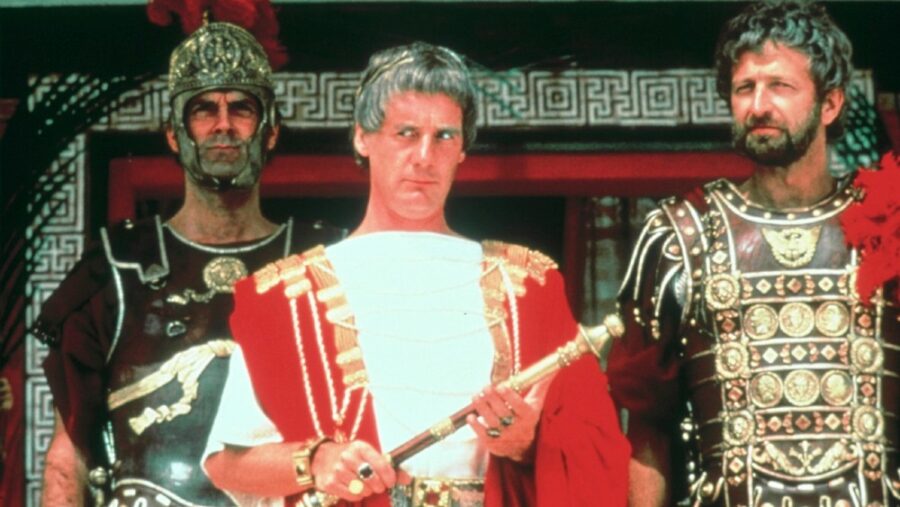
However, as one might expect, the controversy only spiked public interest in the film, as audiences flocked to theaters and the comedy became a box office success. And the Python crew capitalized on the hype; the film’s posters in Sweden famously read: “So funny, it was banned in Norway!”
The film’s principal photography was a less bumpy road than its reception. Shot in Monastir, Tunisia, the crew could utilize sets initially put up for Franco Zeffirelli’s Jesus of Nazareth, shot the year before.
To see a terrific comedy and iconic piece of film history, watch Monty Python’s Life of Brian on Netflix now.












